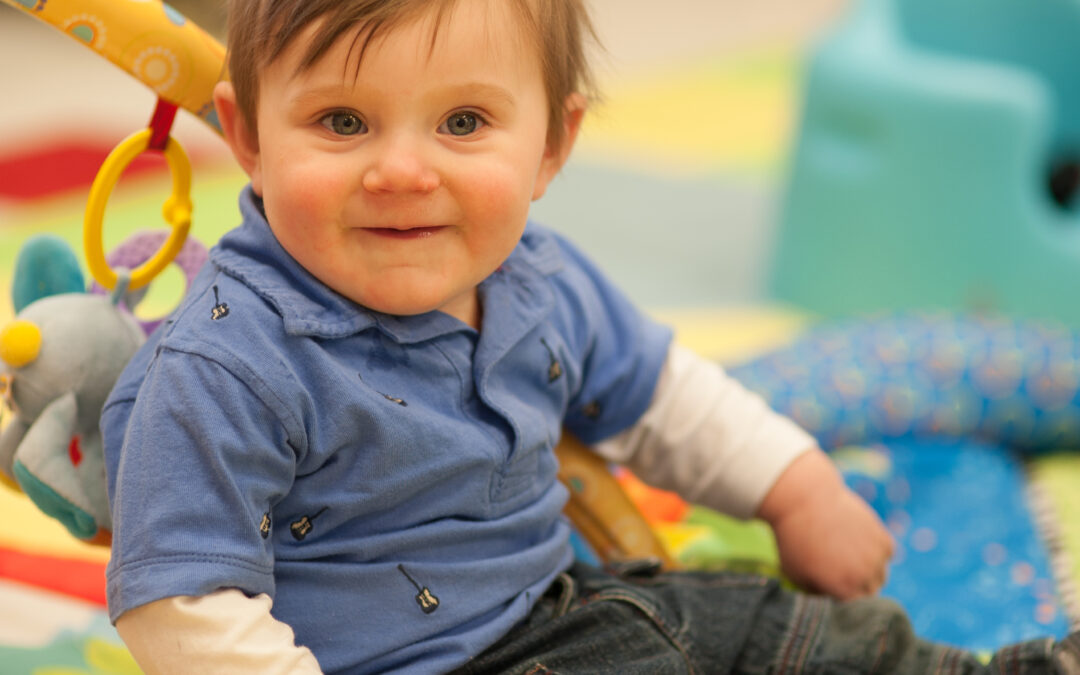Children begin making significant strides in language development as they reach 18 months in age. The child care professionals at Celebree Learning Centers discuss what to expect during quick changes in vocabulary and how to handle your child’s newfound love for words.
What You Can Anticipate
Since your child is still in the midst of toddler development, they may find it difficult to pronounce most of their words, especially those requiring frequent tongue movement such as l’s, S’s and consonant blends. They often only use the leading-off consonant in words, which is why sometimes they pronounce map as mah. They will also find certain letters easier to pronounce than others. For example, they may pronounce rock as wock because w-sounds require a less complex tongue placement.
Although your child may face challenges when forming words, he or she is going through an important milestone as they show efforts at communicating and being understood. It is important to encourage your child during this process.
What You Should Do
You may start to see improvement in your child’s vocabulary and pronunciation by the age of four, especially with the right support. Consider the following as a means for guiding your child.
- Speak clearly and use simple words when talking to your toddler. If he or she mispronounces a word, make sure they hear you use the word correctly. For example, if your little one says “cuh!” respond with, “Yes! That is your cup. You drink apple juice from this red cup.”
- Talk about what you are doing as you go about your day. You can say, “We are walking in the park” as you take your stroll. Encourage your child to repeat each of your phrases.
- Practice, practice, practice. Read books with your child and sing songs together. Repeat sounds that they may have a hard time pronouncing. If he or she is struggling with r-sounds, you can say, “Run to the red rock. Can you say rock?”
- Engage in conversation. Toddlers like being involved, so ask them questions to encourage practice and be patient as they try to formulate words. Fill in the blanks for missing sounds when you respond, so that he or she can easily hear what should be said.
Language development takes off like a rocket during this age. If you have any concerns about your child’s speech, it can never hurt to speak with your pediatrician. Each child’s journey is different, but with the right guidance and encouragement, this process has the potential to be one that both you and your toddler can enjoy together. For more information regarding your toddler’s language development journey, contact the child development professionals at Celebree Learning Centers today.

